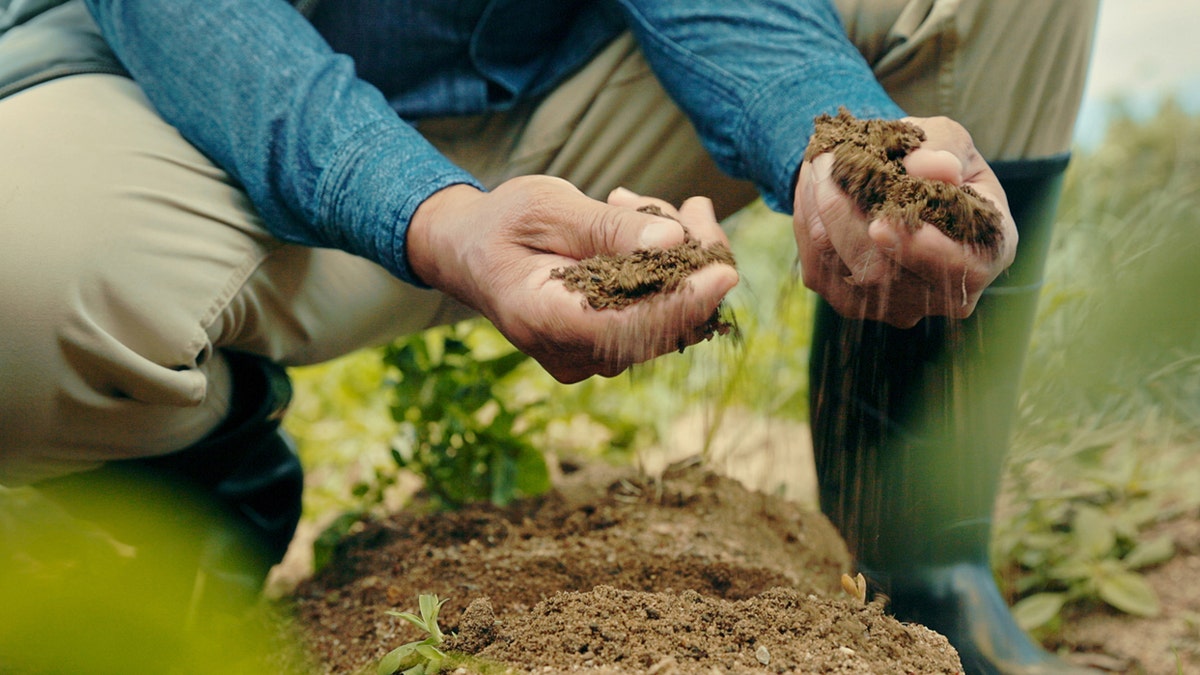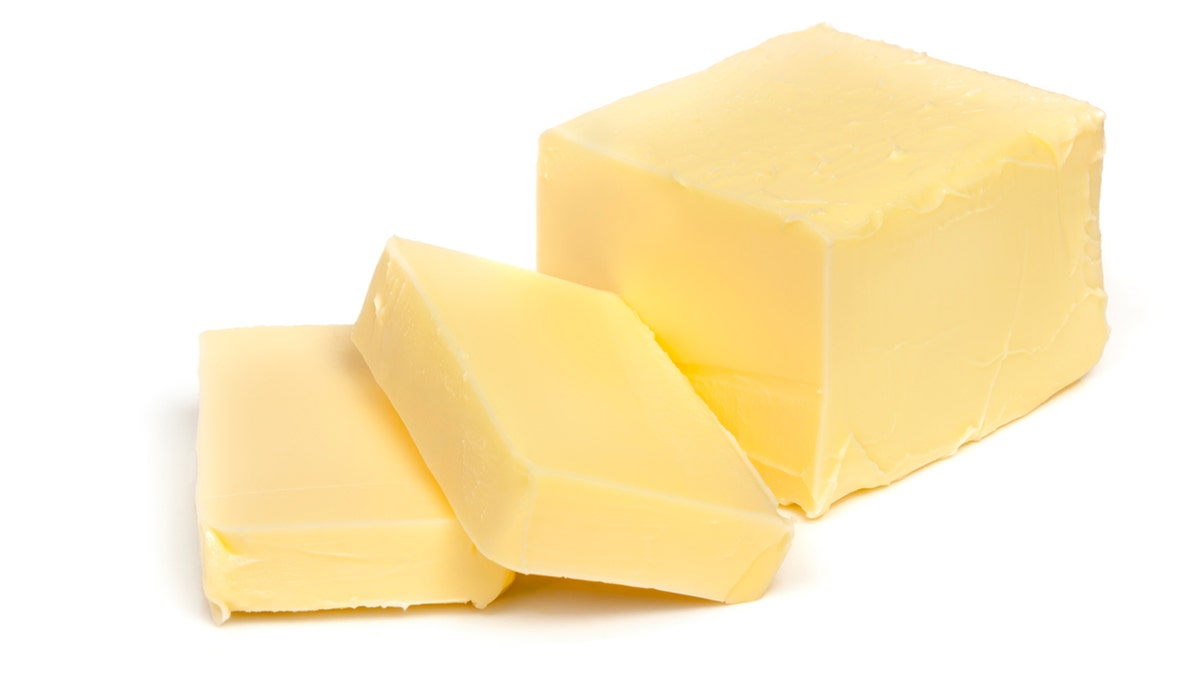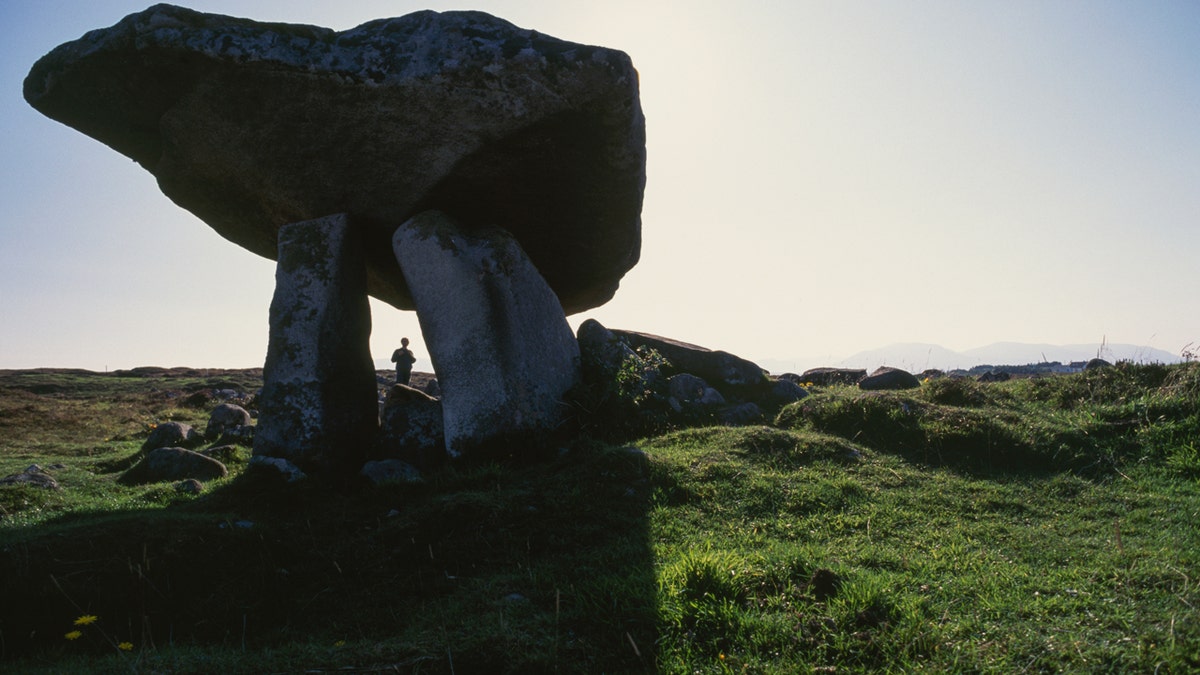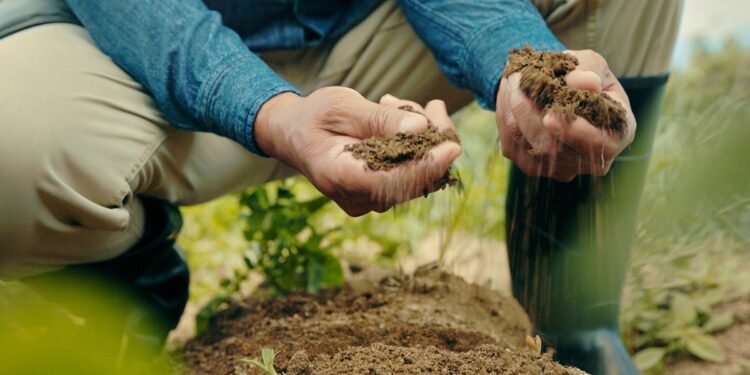A strange object with a “cheesy” smell turned out to be an ancient discovery, one of the largest of its kind in Ireland.
Oftentimes, ancient discoveries come out of archaeological sites, but sometimes, they can be found right in your own backyard.
That’s how Micheal Boyle’s story went. Boyle was conducting work on his farm in County Donegal, when he found what turned out to be an ancient slab of bog butter.

While a farmer was working on his land, he came across an ancient chunk of bog butter by “pure luck.” (iStock)
MOM, SON DIG UP ANCIENT OBJECT OFTEN FOUND NEAR BURIAL GROUNDS WHILE GARDENING
In ancient times, dairy or animal fat was buried in bogs for preservation or put in a wooden container as an offering to gods or spirits, according to The Irish News.
The slab of bog butter on Boyle’s farm had a small piece of wood on the bottom, Boyle told the Irish Examiner. This likely indicates that the bog butter once lay in a wooden container that has since decomposed.
The unearthing of bog butter is fairly common in Ireland and in Scotland, with around 500 finds recorded in Ireland.
This find was especially unique in its large size, and it could very well be “one of the biggest chunks of bog butter found in Ireland to date,” according to Paula Harvey, an archaeologist who visited the site, according to The Irish News.

Butter used to be preserved in bogs around Ireland. (iStock)
ARCHAEOLOGISTS FIND SEVERAL ROCK CARVINGS OF ANCIENT BOARD GAME DATING BACK 4,000 YEARS
Bog butter chunks are usually around the size of a mixing bowl. Harvey explained, but this one was between 22 kg and 25 kg (around 48 and 55 lbs.) in weight, according to The Irish Examiner.
“It was just by pure luck that we came across it,” Boyle said, per the Irish Examiner.
Boyle explained to the outlet that he had seen something about a foot in the ground, and was quickly encompassed with a “cheesy smell.”
Right away, Boyle said he knew what he had discovered.

It is hoped that the ancient bog butter slab will be displayed at the Kilclooney Doleman Centre in Donegal once research is complete. (Getty Images)
CLICK HERE TO GET THE FOX NEWS APP
“It does taste like butter, an unsalted butter at that. I had a sliver, and I’m still here to tell the tale,” Harvey said of the find, according to The Irish News.
Historians say that the ancient bog butter could date back to the Bronze Age, according to the Irish Examiner, but more research is being done at the National Museum of Ireland.
It is hoped that once the analysis is complete, it will be displayed at the Kilclooney Dolmen Centre.
“The slab of butter wouldn’t mean anything to anybody visiting a national institution,” Harvey explained, according to The Irish News, “but it certainly would mean an awful lot to the local community here in south west Donegal.”






